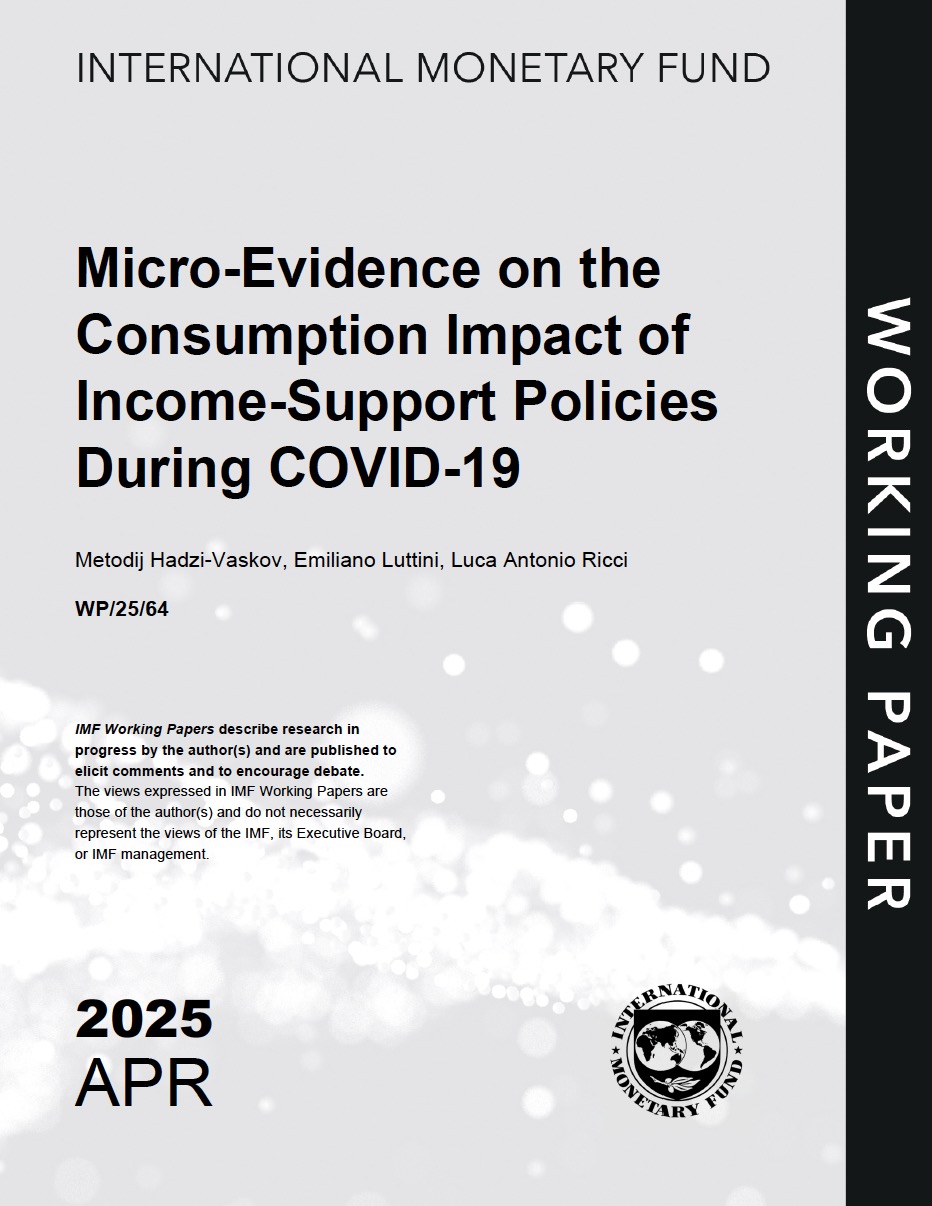国际货币基金组织《微观证据:COVID-19期间收入支持政策对消费的影响》
发布时间:2025-04-09
浏览次数:197
作者:国际货币基金组织
Income-support policies can boost consumption during a catastrophic episode like the COVID-19 pandemic. Using data on Chilean municipalities, we investigate the impact on private consumption of income···
Income-support policies can boost consumption during a catastrophic episode like the COVID-19 pandemic. Using data on Chilean municipalities, we investigate the impact on private consumption of income support policies, such as lump-sum trans-fers and withdrawals of funds from the contributors’ mandatory pension accounts. We find that both emergency income and pension withdrawals had statistically sig-nificant effects with an estimated average marginal propensity to consume of about 20 percent. Consumption of durable goods is more sensitive to these policies than other goods, especially in the programs’ initial stages. Higher educational attainment and financial leverage, proxying better access to bank credit, are associated with weaker consumption reaction across municipalities.
收入支持政策可以在COVID-19大流行等灾难性事件期间促进消费。利用智利各市的数据,我们调查了收入支持政策对私人消费的影响,如一次性转移和从缴款人的强制性资金中提取资金养老金账户。我们发现,应急收入和养老金提款都有统计学上的显著性影响估计平均边际消费倾向约为20%。的消费耐用品比其他商品对这些政策更敏感,尤其是在计划的初始阶段。较高的受教育程度和财务杠杆率(意味着更容易获得银行信贷)与各市的消费反应较弱有关。




















